| All Artists: Olivier Messiaen, Daniel Barenboim Title: Oliver Messiaen: Quatuor pour la Fin du Temps (Quartet for the End of Time) (1940) Members Wishing: 0 Total Copies: 0 Label: Deutsche Grammophon Release Date: 10/25/1990 Genre: Classical Style: Chamber Music Number of Discs: 1 SwapaCD Credits: 1 UPC: 028942324725 |
Search - Olivier Messiaen, Daniel Barenboim :: Oliver Messiaen: Quatuor pour la Fin du Temps (Quartet for the End of Time) (1940)
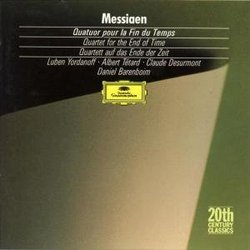 | Olivier Messiaen, Daniel Barenboim Oliver Messiaen: Quatuor pour la Fin du Temps (Quartet for the End of Time) (1940) Genre: Classical
|
Larger Image |
CD DetailsSimilar CDs
Similarly Requested CDs
|
CD ReviewsAn authoratative Performance of Messiaen's famous Quartet Y.P. | Mount Messiaen, Utah | 02/18/2009 (5 out of 5 stars) "Messiaen composed Quatuor pour la fin du temps (Quartet for the End of the Time) between the summer of 1940 and January of 1941, while a prisoner in the German camp at Görlitz in Silesia. The somewhat unusual instrumental combination was due to the musicians present in the camp. Quatuor was premiered in the camp in January 1941 with Messiaen himself at (a beat-up) piano. The audience consisted mostly of his fellow inmates and some German officers. He later famously, and fondly, recalled the experience: "Never have I been heard with as much attention and understanding." Messiaen probably did not anticipate this composition to be one of the most performed and recorded pieces in his oeuvres. The music is very typical Messiaen of this period: complex "talea" of rhythmic values, "colorful" chords, "simple sweet" melodic lines, juxtaposition of slow, meditative movements and energetic, zesty fast ones. Bird songs are, expectedly, an integral part of the music, although not as prominent as in his later pieces. (In my humble opinion, he first truly achieved the unification of bird songs and the "harmonic" colors (and his Catholic faith) only in late 50's and early 60's, notably Couleurs de la cité céleste in 1963.) This recording was made in Messiaen's presence and was authorized by him, so "must" be taken as "authoritative". Even though the late composer "seemed" to endorse every single recording which he came across, one can see, from existing video, that he made frequent suggestions when present in rehearsals of his music. -- My point is that this fact should not be taken lightly. -- Those who learn the basics of Messiaen's composition understand that rhythm is of fundamental importance in his music. This performance is, to my ears, a model of rhythmic precision and judiciously chosen tempos.(*) The slow movements are played expressively with meditative mood, while the fast ones with invigorating energy. The ensemble playing is generally quite good. Daniel Barenboim must be singled out for his performance. He manages the repetitions in the slow movements to maintain hypnotic musical flow, but unleashes his virtuosic power whenever called for. Clarinettist Claude Desurmont is equally admirable. He plays with a good sense of melodic voice line, and manages Messiaen's very extreme dynamic markings with competence. The only small quibble I have is the tone production of the string players. The slightly uneven tone production and vibrato could be distracting, especially in the slow movements. Unfortunately, the close miking, while increases the clarity of the sound, amplifies the edginess of the strings. In summary, this is an excellent recording, one which fully realizes the composer's intentions (as far as the composer himself is concerned.)(**) It is chosen as part of the Messiaen Complete Edition, which I plan to review later. Highly recommended. ------------------------ (*) The readers might find complaints from other reviewers about the "slow tempos". I am not sure if they have ever checked out the music from the library. The tempo marking of, for example, V. Louange à l'Éternité de Jésus, is "infiniment lent" (infinitely slowly). Perhaps the lesson here is that one should not confuse one's personal taste with the composer's intentions. Indeed, the main point of writing this review is to stress this point, which is unfortunately only shared by minority on this page. (**) Another recording I enjoy is the one led by Yvonne Loriod, Messiaen's second wife and pianist for the first performances of his later works involving piano." Music fans donald litcher | New York, and Kyoto | 01/21/2003 (5 out of 5 stars) "In defense of the CD and the artists who created it, don't be too harsh on the CD's tempi. Judge tempi in their original acoustic environment. Enjoy the CD as a reference or resource since it is endorsed by the composer, and go to concerts too!" I couldn't disagree more Y.P. | 03/13/1999 (3 out of 5 stars) "I really dislike the Tashi recording, precisely because it rushes. The early morning birds in that recording sounds like the LA freeway at rush hour! Although this recording doesn't get everything right (the Intermede is not quite light-hearted enough), the first movement is beautiful - not muddy at all. The ideal recording of this piece is the De Peyer recording made during the 70's, which doesn't even show up in the catalogs. If you ever come across it, run, do not walk, to the cash register. You won't be disappointed - it's legendary."
|

 Track Listings (8) - Disc #1
Track Listings (8) - Disc #1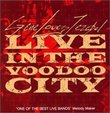

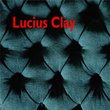
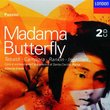
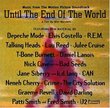

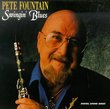
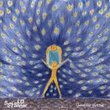
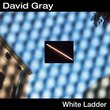
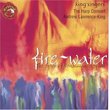
![Songs You Know by Heart [Eco-pak]](https://nationalbookswap.com/cd//m/21/2421/13102421.jpg)